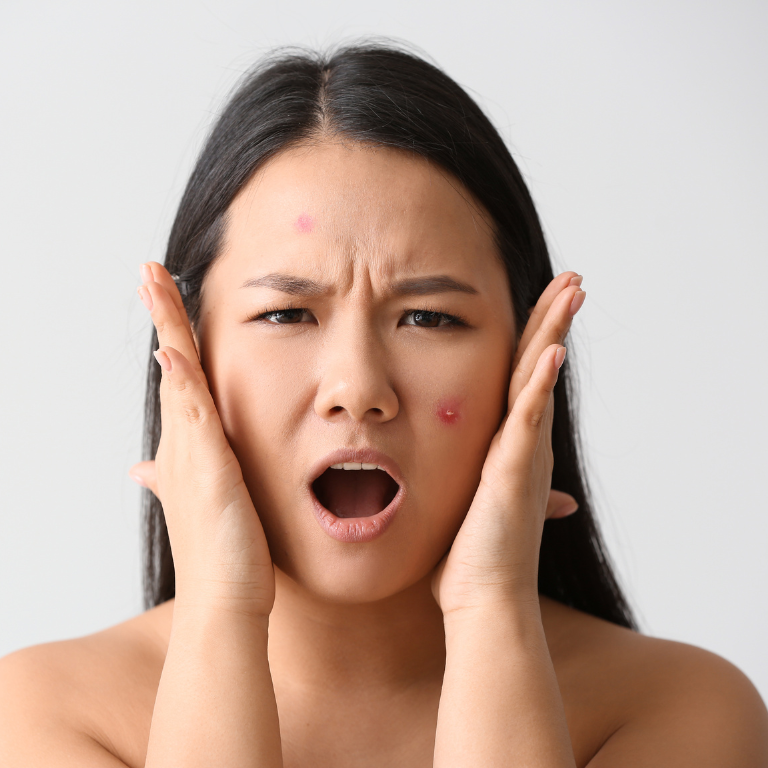
Acne: Is it a disease of Wealthy Western Countries?
Acne (also known as Acne Vulgaris) is an inflammatory skin condition caused by hair follicles plugging with oil and dead skin cells.
Should Acne vulgaris be considered a disease of wealthy countries as it has the highest prevalence rates in rich developed countries compared with developing countries?
Acne vulgaris is the most common skin disease in western populations, involving about 80-90% of adolescents.

Adult Acne is also becoming more common, as about 20% of all adult women and 6% of adult men experience Acne in their lifetime.
SOME INTERESTING STUDIES

In 1990, Schaefer, a general practitioner who spent almost 3 decades treating Inuit (Eskimo) people as they transitioned to modern life, reported that Acne was absent in the Inuit population when they lived and ate in their traditional manner.
However, after they transitioned to the western lifestyle, acne prevalence became similar to Western civilizations.
Dr.Staffan also traveled to a small island name Kitava in Papua New Guinea in 1990.
Thousands of indigenous people inhabited Kitava, living in a village free of cars, telephones, and electricity.
Dr.Staffan conducted a health checkup during his stay there. He was amazed to observe that no skin disease existed in Kitavans; no pimple, no pustule, or no open comedones.
These findings are listed in JAMA 2022 Dermatology papers.
He concluded that Acne is most definitely a disease of wealthy western nations.
Investigators extracted data from the Global Burden of Disease 2019 Study suggest that the prevalence of Acne was most significant in countries with a high sociodemographic index (SDI)/ wealthy countries, primarily Western Europe, East Asia, and high-income areas of the Asia Pacific.

So, WHY IS ACNE SO PREVALENT IN WEALTHY WESTERN NATIONS?
1: DIET
One possibility is that people in rural areas have a more diverse diet than those in urban areas, and diet can be a factor in the development of Acne.
In developed countries, processed & high-glycemic foods like white potatoes, white bread, white rice, and processed foods like crackers, sugary snacks, and sugared drinks are typical in the Western world.
All these processed foods may contribute to the development of Acne.
2: STRESS LEVELS
Stress levels may also be lower in rural areas, and stress is a significant factor in the development of Acne. Stress can stimulate the production of hormones such as cortisol, increasing oil production and acne breakouts.
3: ENVIRONMENTAL POLLUTANTS
Another possibility is that people in rural areas may be exposed to fewer environmental toxins, which can also contribute to the development of Acne. Urban areas tend to have higher pollution levels, which can clog pores and lead to acne breakouts.
4: Natural Remedies:
There is greater access & inclination to natural remedies in rural nations, such as herbs and essential oils, which can be used to treat Acne.
These remedies are often based on traditional knowledge passed down through generations and are used in conjunction with other natural treatments, such as dietary changes and lifestyle adjustments.
Herbs such as turmeric and neem have been used for centuries in traditional medicine to treat various skin conditions, including Acne.
So, Acne can indeed be considered a disease of affluent western nations.

However, it’s not just Acne that is affecting West.
Atopic dermatitis (eczema) and other inflammatory skin diseases are on a sharp rise in the affluent West than in other parts of the world.
But this vast issue can be sorted out if we start working on lifestyle, diet, control of environmental pollution and stress.
Also, we need to restrict the excessive use of conventional meds and introduce natural & holistic meds to control this peak in chronic skin diseases like Acne.
If you are experiencing persistent or severe acne & you would like a holistic treatment, Dr.Pallavi can help you; find the details here!
